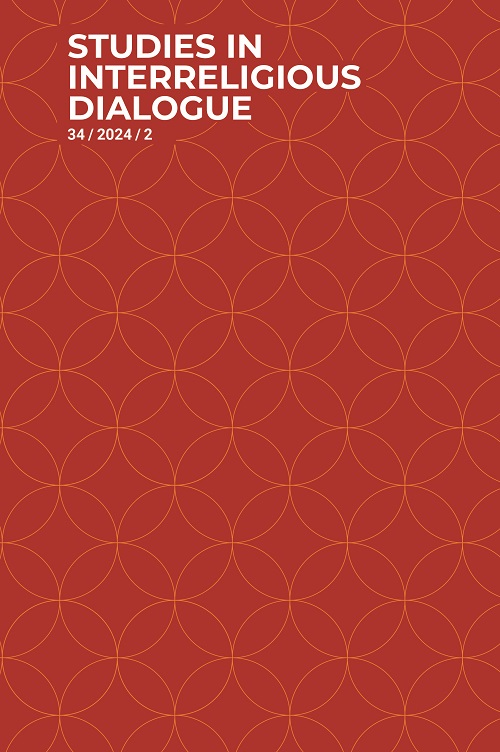 previous article in this issue previous article in this issue |

Preview first page |
Document Details : Title: Trends and Developments in Interreligious Dialogue Author(s): EVERS, Georg Journal: Studies in Interreligious Dialogue Volume: 17 Issue: 2 Date: 2007 Pages: 244-256 DOI: 10.2143/SID.17.2.2024011 Abstract : The overview of developments in interreligious dialogue starts with describing the controversy regarding the address by Benedict XVI at Regensburg University, which had a considerable effect on Christian-Muslim dialogue. In Germany, another controversy concerning Christian-Muslim dialogue began with the publication of a directory of the Protestant Church in Germany on the relation between Christians and Muslims which caused harsh criticism by Muslims. It is in this context of a growing suspicion and misgivings among the religions that we can observe the growth of a tendency to be overly careful in respecting religious sensitivities and taboos accompanied e.g. by prohibition of depicting animals and other things which might be offensive to the feelings of members of other religious communities. We can observe a development from cultural relativism towards a growing Islamophobia that feeds on the growing number of terrorist incidents caused by Muslim extremists. The rest of the article concentrates on positive signs that interreligious dialogue is being continued in spite of the general climate of a growth of religiously motivated forms of violence. Thus from 8-11 June 2007 the “Seventh Conference of the European Network of Buddhist-Christian Studies” took place in the study centre of St. Virgil in Salzburg. In the forefront of the approaching Olympic Games in Beijing in 2008, even the Chinese government has become active in the field of interreligious dialogue. The article concludes with other examples of dialogue activities in various Asian countries. |
 |


